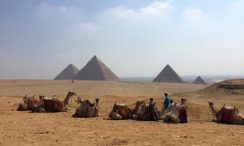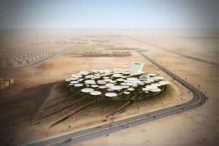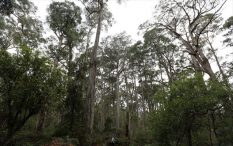Category: EGYPT
-

Egypt Hosts Five Million Refugees: Foreign Ministry
Egypt’s Assistant Minister of Foreign Affairs Ambassador Hisham Badr told European Union Members of Parliament (MEPs) that Egypt now hosts five million refugees and migrants from across the region. Blaming the EU-Turkey deal for an increase in the number of refugees arriving in Egypt, Badr said that pressure has increased on Egypt to accommodate for…
-

Egypt to hire private companies to clean, manage and secure Giza pyramids area
Egypt’s government has decided to hire private companies to manage, maintain and secure the area around the Pyramids of Giza, the Middle East News Agency (MENA) reported. A meeting took place on Tuesday between Prime Minister Sherif Ismail and officials from the housing ministry, the tourism ministry and the antiquities ministry, during which the government…
-

Winners announced in the Science City Competition in Egypt
Weston Williamson + Partners, a design firm from the United Kingdom under the direction of Philip Turner, has been awarded First Place in the recently concluded single phase, open, international competition for a “Master Plan and Conceptual Design of the Science City,” to be located in 6th of October City near Cairo. The competition was…
-

Egyptian researchers discover a way to grow forests in the desert with sewage
Desertification is a major issue throughout Africa, but there’s a simple way to stop the spread of deserts into fertile land: planting forests. The problem is that in the regions hardest hit by the phenomenon, there simply isn’t enough clean water to properly nurture the trees and keep them healthy. But an innovative project in Egypt proves that…
